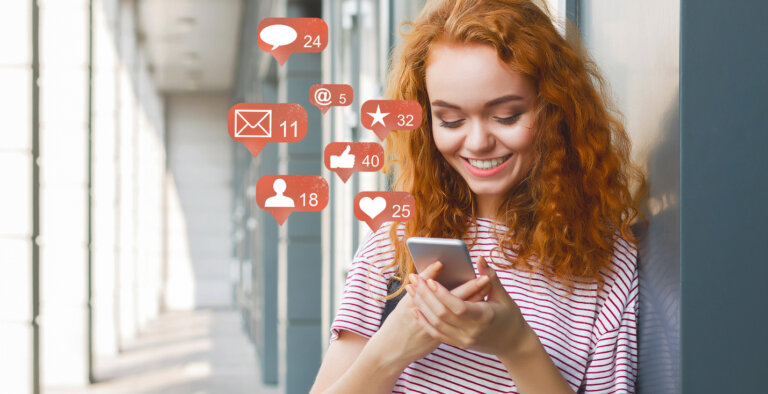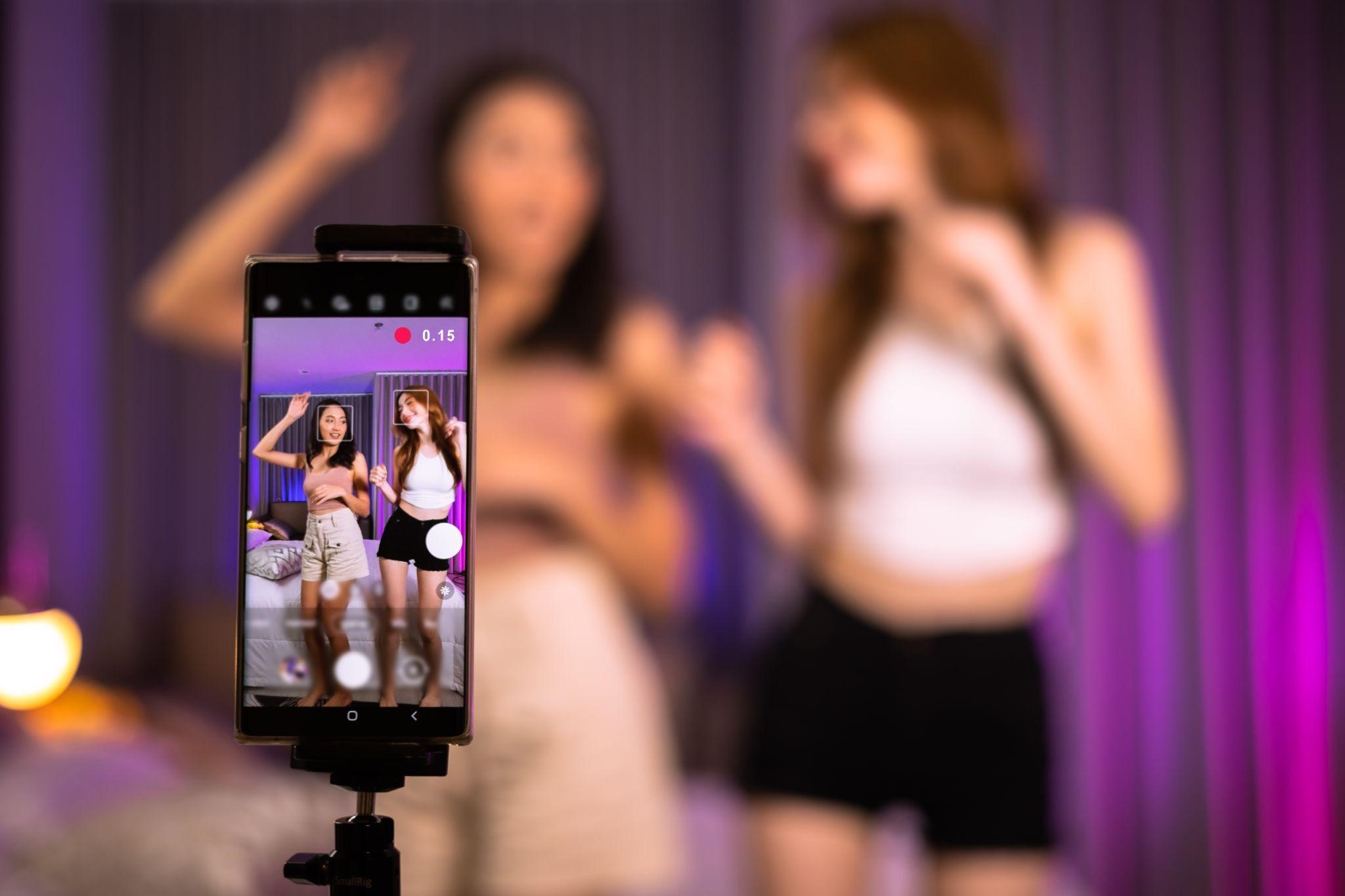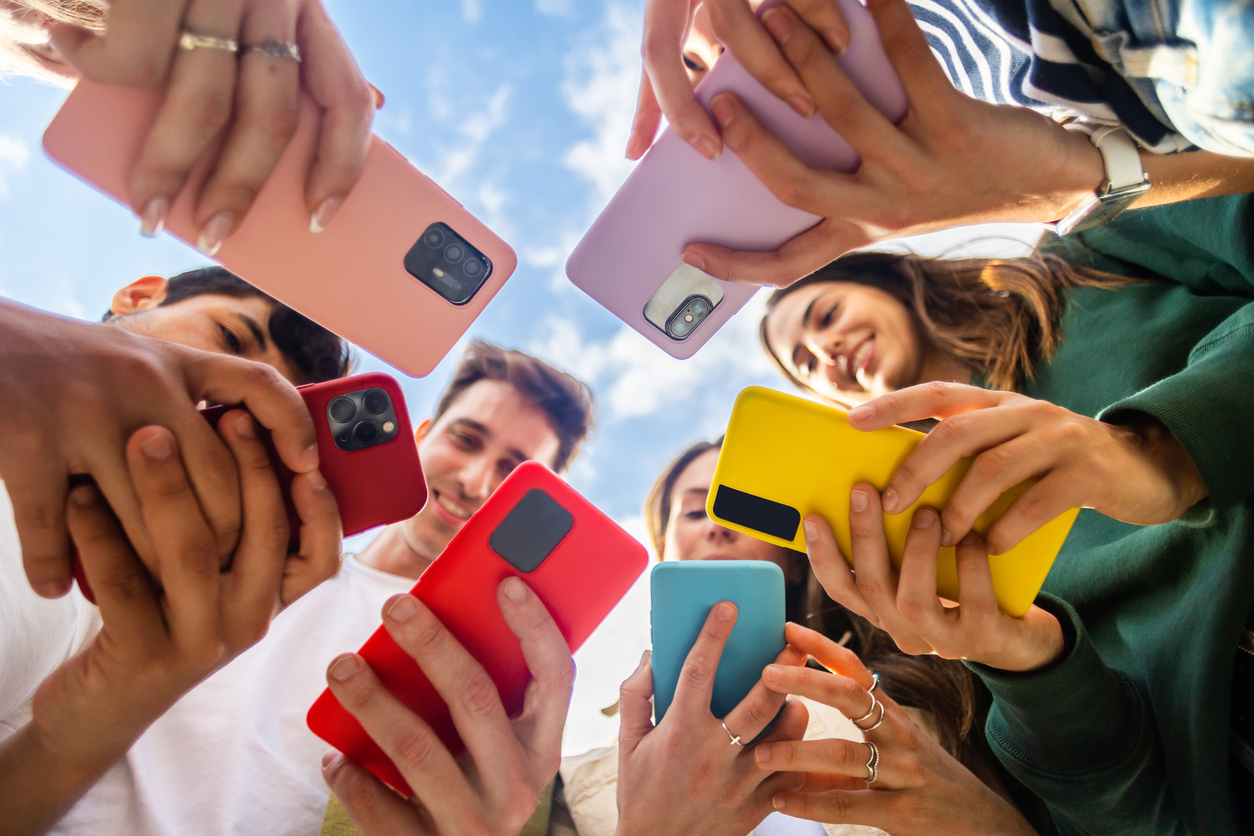Beyond Filters: Social Networks and Image Editing

We live in a world marked by clicks, likes, and notifications on social networks. These virtual platforms have evolved rapidly in the last decade, becoming spaces where digital and emotional well-being are intertwined on the screen. Recognizing the impact of image editing when uploading content to the internet is key to not losing inner peace.
Beyond being virtual scenarios in which to share updates about our lives with loved ones, social networks and the idealization of unattainable standards can have a great impact on people’s mental health. Therefore, it’s important to be aware of how the image you project online can affect your mood.
You may be interested in: Why Does Social Media Make People Unhappy?
The influence of image editing on social networks
The virtual universe presents complex issues that aren’t always visible on the screen. The figure of “influencers” and the carefully selected representation of beauty and happiness can affect the self-esteem of users, especially among young people who spend considerable time on these platforms.
According to estimates, young people between the ages of 12 and 15 spend an average of 20.5 hours per week on the Internet. Many of these teenagers feel an innate need to be appreciated on social networks, where every like and comment can become an indicator of worth.
Today, the use of artificial intelligence (AI), driven by tools such as Creative Suite, has influenced image and video editing, allowing content to look more professional. However, the pressure for perfection can generate unrealistic standards, especially when it comes to the normalization of the use of beauty filters that modify reality.
This is where the responsible use of AI can be of great benefit by consciously employing these types type of editing tools. For example, the creative suite allows you to edit your photos and videos with the help of artificial intelligence and graphic design, remove backgrounds, correct colors, generate automatic captions, and use editable templates if you’re not an expert in graphic design.
In addition, a free online tool like this is an ideal way to stay on trend or viralize videos without them losing their authenticity. You can cut them, add trendy music or stickers, stabilize images, improve their quality, or incorporate effects. In this way, this tool facilitates the creation of attractive and original content for any social network.
4 tips when editing your images for social networks
In a world where screens often blur the line between reality and representation, taking care of your emotional well-being is key to avoiding destructive thoughts and unnecessary comparisons. Here are some recommendations you should keep in mind when editing images for your social networks.
1. Encourage authenticity and honesty

Shedding virtual masks and showing authentic aspects of your life are among the first steps to a healthier online presence. Revealing imperfections, challenges, and less glamorous moments creates a real connection with your audience. So, the first tip is not to overuse AI in image editing and to show yourself as you are.
According to a study published in the academic journal Children and Youth Services Review, the use of highly visual social networks (such as Instagram, Snapchat, or TikTok) can have a negative psychological impact on young people. This is due, in part, to the normalized use of beauty filters that modify reality and contribute to the reinforcement of a negative body perception.
Remember that it’s okay to edit your photos or videos a bit if it makes you feel more confident. The important thing is not to overdo it with retouching tools and to project an unreal image. Authentic beauty lies in diversity and in the authenticity of who you are.
2. Promote body positivity
Avoid drastically distorting your appearance using artificial intelligence tools. Honest representation contributes to a more positive body image, both for you and your followers. Therefore, strive to highlight your natural beauty to foster an atmosphere of acceptance and appreciation for uniqueness.
According to research published in the Canadian Medical Association Journal, young people who use social networking sites excessively can develop a negative view of themselves. This is largely due to comparisons, cyberbullying, and the worrying normalization of self-harm and suicide.
Constant preoccupation with achieving a “perfect” appearance can have a negative impact on mental health, contributing to problems such as anxiety, depression, and low self-esteem.
3. Avoid social comparisons

Don’t fall into the trap of comparing yourself to unrealistic standards when editing your images. Comparing yourself to others can negatively affect your confidence and emotional well-being. Give importance to your personal accomplishments and celebrate your authenticity rather than seeking validation through outward appearance.
Keep in mind that fostering compassion and empathy on your networks not only elevates the mood of your audience but also contributes to the creation of a digital space that nurtures emotional well-being. Therefore, be a beacon of positivity and respect, recognizing the importance of providing virtual support to those in need.
4. Share valuable content
If you want to have a positive social media presence, think twice before posting the image you just edited. Keep in mind that AI tools like the creative suite can be great allies, but you shouldn’t depend on them. Share inspiration, motivation, and personal goals to foster a positive environment.
Most importantly, never underestimate the power of the things you post on social media. A study in Applied Psychology: Health and Well-Being suggested that people who are exposed to negative news and images on the Internet are at an increased risk of depression, anxiety, and post-traumatic stress disorder.
Keep reading: How to Deal with Criticism and Hate on Social Media
Ensure a positive presence on social networks
Navigating social media requires a balanced combination of emotional awareness, digital empathy, and healthy boundaries. So, don’t underestimate the power of image editing on these platforms and encourage healthy interaction on them. Cultivating a positive online presence can enrich your browsing experience and strengthen your emotional well-being.
We live in a world marked by clicks, likes, and notifications on social networks. These virtual platforms have evolved rapidly in the last decade, becoming spaces where digital and emotional well-being are intertwined on the screen. Recognizing the impact of image editing when uploading content to the internet is key to not losing inner peace.
Beyond being virtual scenarios in which to share updates about our lives with loved ones, social networks and the idealization of unattainable standards can have a great impact on people’s mental health. Therefore, it’s important to be aware of how the image you project online can affect your mood.
You may be interested in: Why Does Social Media Make People Unhappy?
The influence of image editing on social networks
The virtual universe presents complex issues that aren’t always visible on the screen. The figure of “influencers” and the carefully selected representation of beauty and happiness can affect the self-esteem of users, especially among young people who spend considerable time on these platforms.
According to estimates, young people between the ages of 12 and 15 spend an average of 20.5 hours per week on the Internet. Many of these teenagers feel an innate need to be appreciated on social networks, where every like and comment can become an indicator of worth.
Today, the use of artificial intelligence (AI), driven by tools such as Creative Suite, has influenced image and video editing, allowing content to look more professional. However, the pressure for perfection can generate unrealistic standards, especially when it comes to the normalization of the use of beauty filters that modify reality.
This is where the responsible use of AI can be of great benefit by consciously employing these types type of editing tools. For example, the creative suite allows you to edit your photos and videos with the help of artificial intelligence and graphic design, remove backgrounds, correct colors, generate automatic captions, and use editable templates if you’re not an expert in graphic design.
In addition, a free online tool like this is an ideal way to stay on trend or viralize videos without them losing their authenticity. You can cut them, add trendy music or stickers, stabilize images, improve their quality, or incorporate effects. In this way, this tool facilitates the creation of attractive and original content for any social network.
4 tips when editing your images for social networks
In a world where screens often blur the line between reality and representation, taking care of your emotional well-being is key to avoiding destructive thoughts and unnecessary comparisons. Here are some recommendations you should keep in mind when editing images for your social networks.
1. Encourage authenticity and honesty

Shedding virtual masks and showing authentic aspects of your life are among the first steps to a healthier online presence. Revealing imperfections, challenges, and less glamorous moments creates a real connection with your audience. So, the first tip is not to overuse AI in image editing and to show yourself as you are.
According to a study published in the academic journal Children and Youth Services Review, the use of highly visual social networks (such as Instagram, Snapchat, or TikTok) can have a negative psychological impact on young people. This is due, in part, to the normalized use of beauty filters that modify reality and contribute to the reinforcement of a negative body perception.
Remember that it’s okay to edit your photos or videos a bit if it makes you feel more confident. The important thing is not to overdo it with retouching tools and to project an unreal image. Authentic beauty lies in diversity and in the authenticity of who you are.
2. Promote body positivity
Avoid drastically distorting your appearance using artificial intelligence tools. Honest representation contributes to a more positive body image, both for you and your followers. Therefore, strive to highlight your natural beauty to foster an atmosphere of acceptance and appreciation for uniqueness.
According to research published in the Canadian Medical Association Journal, young people who use social networking sites excessively can develop a negative view of themselves. This is largely due to comparisons, cyberbullying, and the worrying normalization of self-harm and suicide.
Constant preoccupation with achieving a “perfect” appearance can have a negative impact on mental health, contributing to problems such as anxiety, depression, and low self-esteem.
3. Avoid social comparisons

Don’t fall into the trap of comparing yourself to unrealistic standards when editing your images. Comparing yourself to others can negatively affect your confidence and emotional well-being. Give importance to your personal accomplishments and celebrate your authenticity rather than seeking validation through outward appearance.
Keep in mind that fostering compassion and empathy on your networks not only elevates the mood of your audience but also contributes to the creation of a digital space that nurtures emotional well-being. Therefore, be a beacon of positivity and respect, recognizing the importance of providing virtual support to those in need.
4. Share valuable content
If you want to have a positive social media presence, think twice before posting the image you just edited. Keep in mind that AI tools like the creative suite can be great allies, but you shouldn’t depend on them. Share inspiration, motivation, and personal goals to foster a positive environment.
Most importantly, never underestimate the power of the things you post on social media. A study in Applied Psychology: Health and Well-Being suggested that people who are exposed to negative news and images on the Internet are at an increased risk of depression, anxiety, and post-traumatic stress disorder.
Keep reading: How to Deal with Criticism and Hate on Social Media
Ensure a positive presence on social networks
Navigating social media requires a balanced combination of emotional awareness, digital empathy, and healthy boundaries. So, don’t underestimate the power of image editing on these platforms and encourage healthy interaction on them. Cultivating a positive online presence can enrich your browsing experience and strengthen your emotional well-being.
All cited sources were thoroughly reviewed by our team to ensure their quality, reliability, currency, and validity. The bibliography of this article was considered reliable and of academic or scientific accuracy.
- Abi-Jaoude, E., Naylor, K. T., & Pignatiello, A. (2020). Smartphones, social media use and youth mental health. Canadian Medical Association Journal, 192(6), E136-E141. https://www.cmaj.ca/content/192/6/E136.short
- McCrory, A., Best, P., & Maddock, A. (2020). The relationship between highly visual social media and young people’s mental health: A scoping review. Children and Youth Services Review, 115, 105053. https://www.sciencedirect.com/science/article/abs/pii/S0190740920302450
- Zhao, N., & Zhou, G. (2020). Social media use and mental health during the COVID‐19 pandemic: Moderator role of disaster stressor and mediator role of negative affect. Applied Psychology: Health and Well‐Being, 12(4), 1019-1038. https://iaap-journals.onlinelibrary.wiley.com/doi/full/10.1111/aphw.12226
This text is provided for informational purposes only and does not replace consultation with a professional. If in doubt, consult your specialist.







